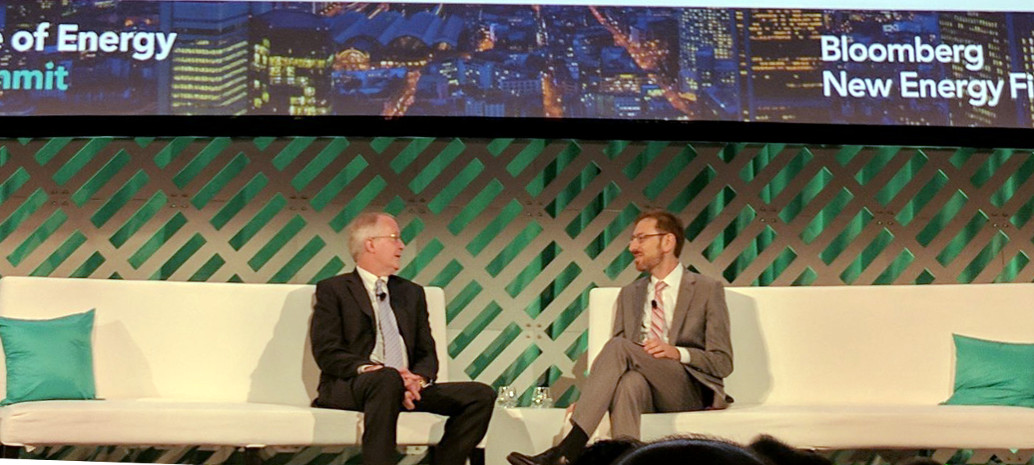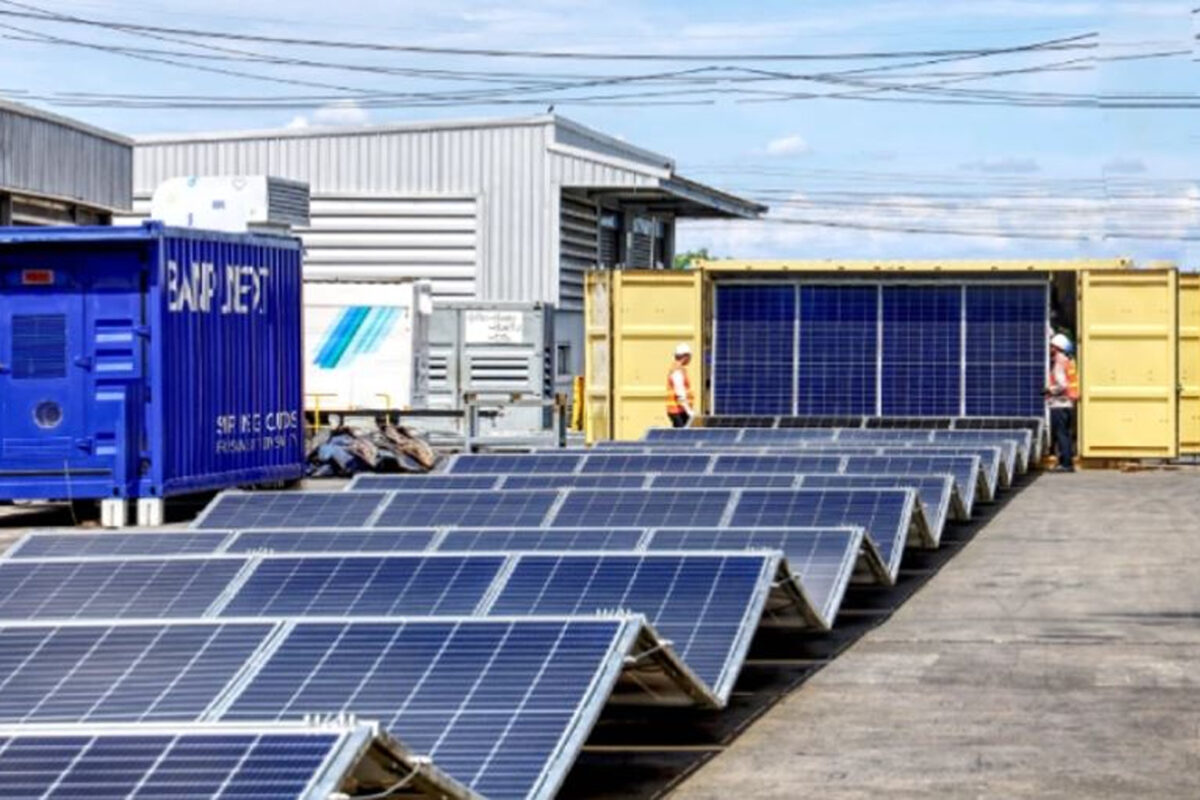Bloomberg New Energy Finance’s (BNEF) annual Future of Energy Summit is known for controversial viewpoints and lively speakers. However, nothing really could have prepared us for this year’s summit.
This is the first Future of Energy summit since the election of Donald Trump as U.S. president, whom BNEF Founder Michael Liebreich mocked in his presentation last year. And in this age of post-truth, “alternative facts” and marches for science, the Future of Energy conference has a markedly different feel.
21 century monkey trials
Perhaps the top event was BNEF Americas Chief Ethan Zindler interviewing professional climate denier Myron Ebell, who oversaw the new administration’s transition at the U.S. Environmental Protection Agency (EPA). Ebell began by claiming a great respect for science but disparaging climate science, and generally went downhill from there, ending in a knot of Populist paranoia about “the technological industrial elite”, scientists, California, “the managerial class”, and a range of other alleged antagonists to hard-working heartland America.
It was truly something out of the Scopes Trial, but the joke is on the rest of us. Populism has been close to being the language of American politics since the 19th century, and these days is spoken better by Republicans. By doing so, Trump was able to put Oklahoma Attorney General Scott Pruitt as the head of the EPA, who now at work undoing years of regulation of not only greenhouse gas regulations but other regulations of pollutants in the power sector.
Debbie Dooley and lessons for liberals
Less dramatic but perhaps more interesting was the previous “Post-Obama” panel on the political, economic and energy environment. This featured a range of perspectives, from California State Senate Speaker Pro Tempore Kevin de León and Debbie Dooley, founder of Conservatives for Energy Freedom and the “Green Tea” coalition, as well as Raymond Wood from Bank of America Merrill Lynch and energy officials from the UK and Korea.
De León and Dooley are at opposite ends of the U.S. political spectrum and represented very different perspectives, yet agreed on a surprising number of things. While de León affirmed that California would continue to work towards climate and renewable energy goals, regardless of the Trump Administration, Dooley did not engage in what could have been a standard partisan debate.
Instead, Dooley schooled the crowd on how to communicate regarding energy and the environment to conservatives, recalling a lesson from her father, a baptist minister, that you have to get people into the church before you can preach to them. One of her stronger points was that while conservatives may be turned off by discussions of the dangers of climate change, that they strongly support renewable energy on the basis of energy freedom and energy choice.
“I don’t care why someone wants to advance renewables, as long as they advance renewables,” stated Dooley. In the end, Dooley and de León ended up shaking hands in a remarkable moment of bipartisanship.
Momentum of the Energy Transition
Whether Dooley or Ebell represent the views of more conservatives is open for debate. But economics, and increasingly politics, are on Dooley’s side. When asked about the possibility of removing the tax credits for wind and solar, Ebell noted that his crowd has been trying to do so for years. “We’ve been fighting (renewable energy tax credits) for years… Republicans have been supporting subsidies,” complained Ebell.
And regardless of the direction of U.S. politics, the momentum of the global energy transition continues. In his summit opening, BNEF CEO Jon Moore stated that energy storage was by far the most interesting technology, noting the 73% fall in energy storage costs from 2010 to 2016.
 BNEF is predicting another 75% decline in lithium-ion battery pack prices to 2030, with demand growing exponentially and reaching 300 gigawatt-hours annually in ten years. Most of this will come from increasing electric vehicle demand, and BNEF predicts that by 2040 EVs will represent a quarter of the global fleet.
BNEF is predicting another 75% decline in lithium-ion battery pack prices to 2030, with demand growing exponentially and reaching 300 gigawatt-hours annually in ten years. Most of this will come from increasing electric vehicle demand, and BNEF predicts that by 2040 EVs will represent a quarter of the global fleet.
And in this environment of rapid change, corporations are leading. Moore noted that 89 companies globally have committed to 100% clean energy, with corporate PPAs with wind and solar projects spreading globally.
This content is protected by copyright and may not be reused. If you want to cooperate with us and would like to reuse some of our content, please contact: editors@pv-magazine.com.



I get it that (American) conservatives may be put off by arguments from climate change and warm (sic) to those from choice and energy independence. But where do they stand on the health threat from air pollution? This only applies to coal and oil, as gas burns clean, but it’s a very strong case for getting rid of the first two. There are a very few health denialists like Milloy, but the position is patently ridiculous. Car fumes and coal smoke make people sick. How is this working out in retail politics, as cities mull over plans for low-emission zones and electric bus fleets, and Sierra Club activists file lawsuits against coal power stations?